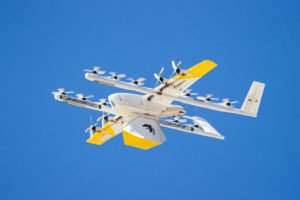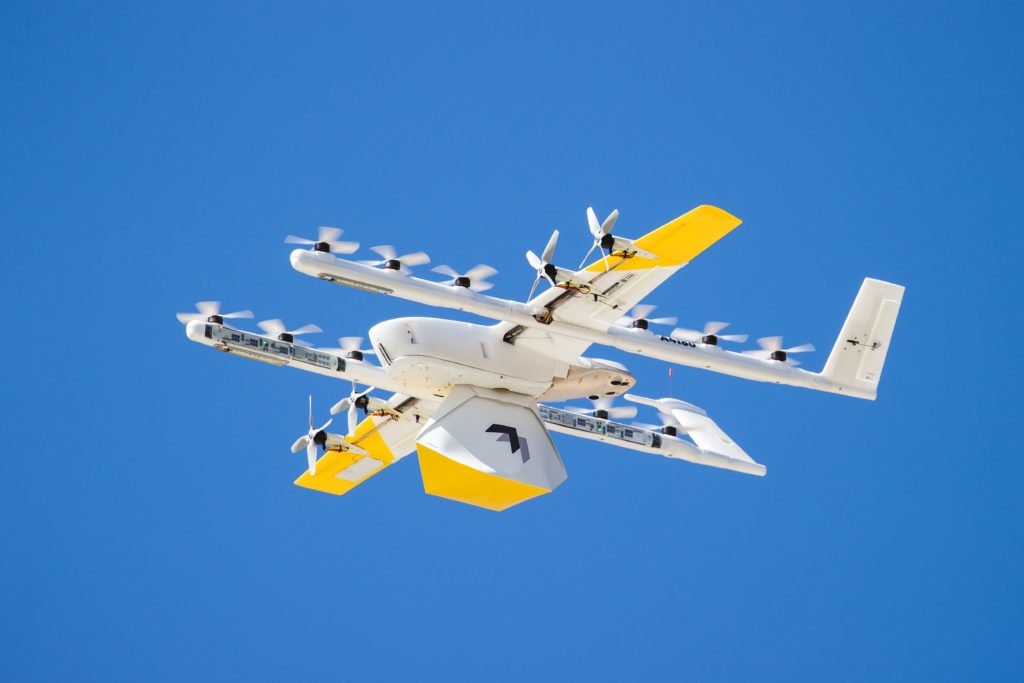 news and commentary. today, wing CEO Adam Woodworth testified before Congress On the need for drone regulation to support commercial operations and America’s leadership in the industry.
news and commentary. today, wing CEO Adam Woodworth testified before Congress On the need for drone regulation to support commercial operations and America’s leadership in the industry.
In his testimony, Mr. Woodworth laid out nine points for Congress to consider in the FAA Reauthorization Bill, a tool that allows Congress to influence the FAA’s activities and goals.
In an editorial previewing his testimony, aviation weekWoodworth said the FAA must develop a “predictable and actionable” regulatory framework to maintain U.S. leadership in the drone industry.From the editorial:
Above all, we hope Congress will support the FAA in adopting approaches to safely integrate drones into federal airspace.
The FAA is the proper regulator for unmanned aerial systems, but the FAA now regulates Wing’s 11-pound foam drones using the same framework designed for 400,000-pound airliners. Many of these regulations make sense for planes that carry passengers, but not for unmanned aerial vehicles.
It is clear that predictability is essential for the development of the drone industry. His words came at his EASA high-level meeting on drones last week, where a risk-based and predictable regulatory framework would “keep the European Union at the forefront of the development of the drone industry,” the European Commissioner said. Reminds me of his Henrik Hololei of the Society. …Europe will become an attractive and safe place for drone startups and investments. ” In the race to lead emerging industries, countries and regions are competing for start-up investment and innovation based on regulations.
Woodworth’s first point was the long-awaited rulemaking by the FAA, the BVLOS flight. The FAA grants many waivers to the BVLOS drone flight limit, but Woodworth points out in his op-ed that the waivers simply aren’t scalable.
Time spent flying with waivers/exemptions has been helpful but not sufficient to enable the most beneficial uses of drones. and to deliver medicines, survey infrastructure, and support other commercial drone applications that rely on predictable approval processes.
Other points in Woodworth’s testimony refer to establishing an “acceptable level of risk” goal to help UAS operators create good safety practices. ‘ said his testimony.
Also included in Woodworth’s testimony were UAS certification, incentives for legacy aircraft to adopt ADS-B technology, UTM, environmental reviews, and remote ID enhancements to include network ID technology. And in a clear call for more targeted support for the drone industry, Woodworth clearly establishes new procedures and processes suitable for unmanned aerial vehicles and calls for drone industry experts within the organization to Called for a “reorganization” within the FAA to empower.
By elevating and empowering the UAS Consolidated Office to streamline and improve the existing approval process within the FAA’s organizational structure, Congress will allow the FAA to reach hundreds of thousands of new aircraft operators and stakeholders in the NAS. should be able to take a more direct approach.
Specifically, Congress will include language in the FAA’s reauthorization to create a deputy administrator position to oversee the operation and certification of the UAS, giving that person the power to actually authorize the UAS and its operations. While giving, it must ensure proper consultation with other business units within the Commonwealth. Federal Aviation Administration.
In his testimony, Woodworth said Wing and other domestic drone companies need a regulatory framework to support their scale here in the United States.
Wing has invested an incredible amount of time, brains and resources into developing and demonstrating a system capable of serving millions of customers in densely populated areas around the world. We urge the FAA to adopt a regulatory framework that will allow us to bring the benefits of this promising technology to communities across the country and maintain our leadership in the field of emerging aviation technology.
read more:
Miriam McNabb is editor-in-chief of DRONELIFE, CEO of professional drone services marketplace JobForDrones, and a fascinated observer of the emerging drone industry and drone regulatory environment. With her 3,000+ articles focused on the commercial drone space, Miriam is an international speaker and recognized figure in the industry. Miriam has a degree from the University of Chicago and high tech she has over 20 years of experience in sales and marketing new technologies.
For drone industry consulting or writing, please email Miriam.
twitter:@spaldingbarker
Subscribe to Drone Life here.
